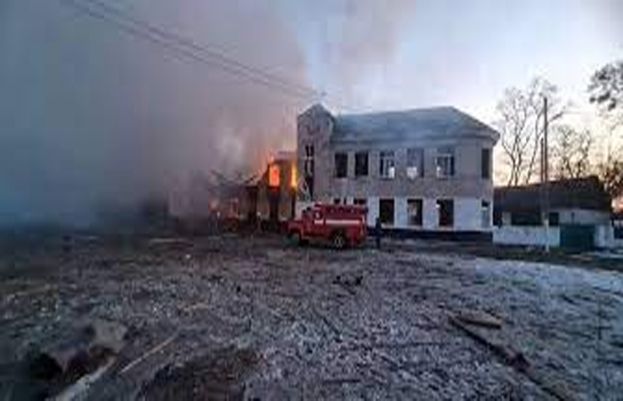
Three weeks into Russia s devastating invasion, the harsh tally of assaults on civilian targets grew to include a school and a cultural centre in the town of Merefa, pounded by overnight artillery fire with 21 people killed, authorities said.
Despite the mounting carnage, punishing international sanctions and unexpectedly strong resistance from Ukrainians, top US diplomat Antony Blinken said Thursday he saw no sign that Russian leader Vladimir Putin "is prepared to stop."
Read more: In call with Putin, Erdogan offers to host him and Zelenskiy for talks
"Intentionally targeting civilians is a war crime. After all the destruction of the past few weeks, I find it difficult to conclude that the Russians are doing otherwise," he said, following warnings from the G7 that those behind such crimes "will be held responsible."
Blinken was doubling down on the tough language used by President Joe Biden -- who a day earlier branded Putin a "war criminal" and on Thursday called him both a "thug" and a "murderous dictator."
He spoke as authorities were still trying to count the dead at the theatre targeted by a bomb in southern Mariupol a day earlier -- which Ukraine s leader Volodymr Zelensky held up as evidence "Russia has become a terrorist state".
In the latest of a series of resonant speeches to Western lawmakers, Zelensky told the German parliament that Moscow was building a new Cold War wall across Europe, "between freedom and bondage."
Russia s unrelenting onslaught on Mariupol has drawn particular horror.
Read more: Russia says parts of a Ukraine compromise deal are close
Local officials say more than 2,000 people have died so far in indiscriminate Chechnya-style shelling of the strategic port, and 80 percent of its housing has been destroyed.
Under new Russian shelling, rescuers were combing through the smoking rubble of the Drama Theatre, where Ukrainian officials said more than 1,000 civilians were sheltering in a basement bomb shelter when it was bombed. Human Rights Watch believes they numbered at least 500.
Among the 30,000 civilians said to have fled Mariupol so far, evacuees said they were forced to melt snow for drinking water and cook food scraps on open fires, with water and power supplies cut off.
"In the streets there are the bodies of many dead civilians," Tamara Kavunenko, 58, told AFP after reaching the central city of Zaporizhzhia.
No comments:
Post a Comment